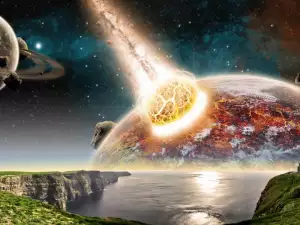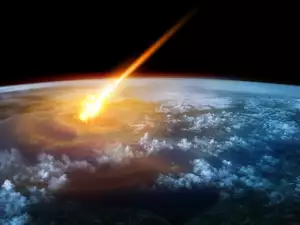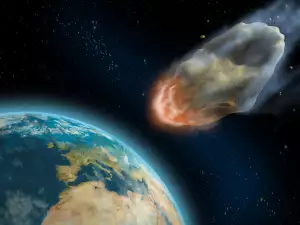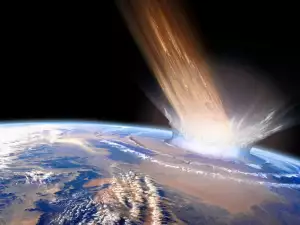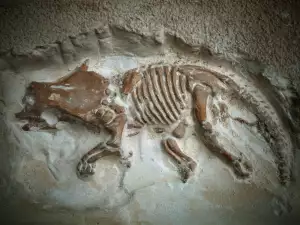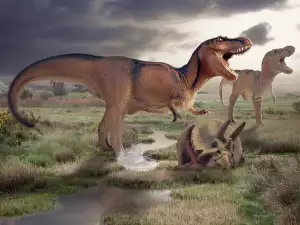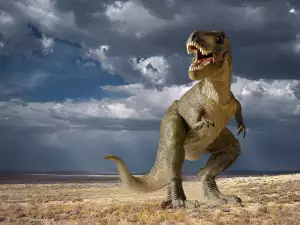65 million years ago dinosaurs were wiped out as it is to be believed by Hugh craters caused by an asteroid, today scientists using satellites have mapped the craters under the Antarctic.
Evidence shows an asteroid measuring between three and seven miles wide had broken up the atmosphere and five large pieces had hit the Earth! Over an area measuring 1, 300 by 2, 400 miles these pieces created multiple craters as told by Professor Frans van der Hoeven from Delft University in the Netherlands.
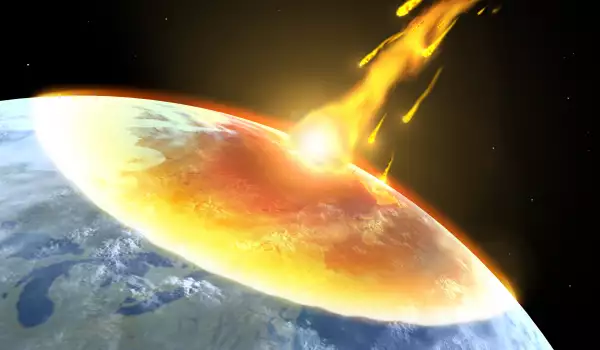
Causing water levels to rise across the world by 60cm, pieces bombed down to earth shattering and melting ice plus the crust underneath the ice. The biggest strike was a sheet of ice melting 200 by 200 miles. This caused the one percent rise in water levels.
However from the time when the similar asteroid that is believed to have wiped the dinosaurs out in Yucatan in Mexico about 780, 000 years ago climate conditions were very different.
Dinosaurs could not possible survive the impact of the asteroid due to the later effects, this included dust storms and fires that blocked the sun. Therefore the Earths atmosphere was so much cooler that it was just impossible for the dinosaurs to survive. During an ice age the Antarctica strike occurred so even tidal waves would have been weakened to mere ripples by the calming effect of icebergs on to the ocean.
1960 Professor Van der Hoeven was on expedition across the continent was when he first realized that there may have been a giant asteroid strike in the Antarctic. It was the signs he noticed of severe anomalies in the gravity from the rocks below, furthermore indicating a crater. Another scientist also concluded these foundings.
However only a year ago from two satellites operating above Antarctica did the maps show holes in the rock created strike had refilled with a mixture of ice, rock and other debris.
Prof Van der Hoeven said: "The extraordinary thing about this meteor strike is that it appeared to do so little damage. Unlike the dinosaur strike there is no telltale layer of dust that demonstrates the history of the event. It may have damaged things and wiped out species but there is no sign of it."
One thing that did happen at exactly the same time was the reversing of the Earth's magnetic field. There is no other explanation as to why this took place and Prof Van der Hoeven believes it was caused by the impact. Guardian News and Media.

